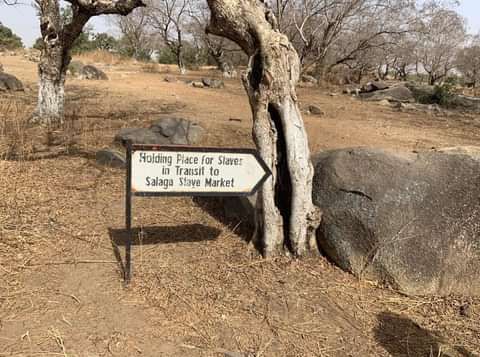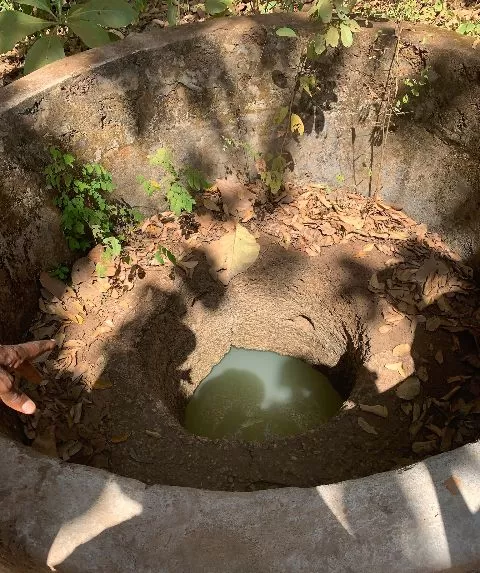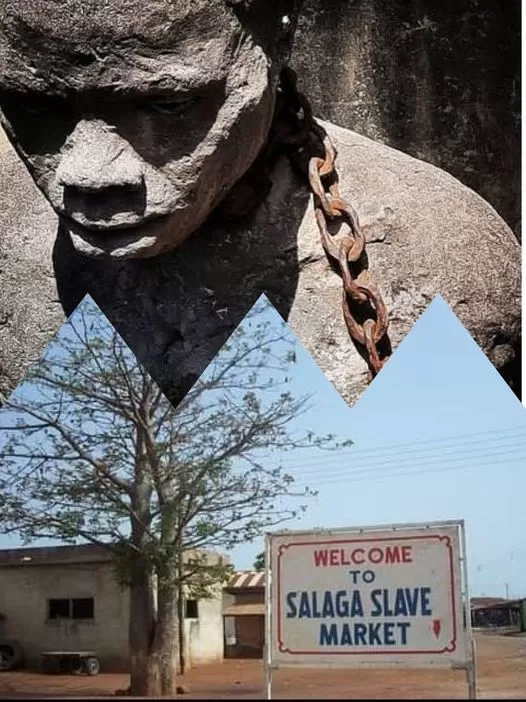Salaga slave market is a monument of slavery and one of the tourist attractions in the upper part of Ghana famous for the sales of enslaved Africans in the history of the transatlantic slave trade in West Africa.
Where is Salaga slave market located in Ghana?
A town in Ghana’s Northern Region is called Salaga. It is situated in the Savannah Region‘s East Gonja District. Salaga is renowned among the list of slave markets in Ghana for its historical significance as the Ashanti Empire’s principal commerce hub during the 19th century. Additionally, it served as a significant hub for the transatlantic slave trade.
The Salaga Market, one of Ghana’s biggest markets and a destination for a wide variety of goods and services, is located in Salaga.
It’s worth noting that, the transatlantic slave trade was a brutal practice that was imposed by European traders, merchants, and colonizers on West Africa and the Americas and various forts and castles were built by European traders and were used for the illegal trade of enslaved people.
During the period of transatlantic slave trade, there were several slave markets in Ghana where enslaved people were brought to be sold and the Salaga slave market served as one of the largest slave markets in the history of slavery not only in Ghana but also West Africa.
Who built the Salaga slave market?

The Salaga slave market in Ghana was not built by any specific person or group. The slave trade in Salaga developed over time as European traders began to arrive in the region and demand for enslaved people grew. The Ashanti Empire, which controlled much of present-day Ghana at the time, was involved in the capture and sale of enslaved people, as were other local leaders and tribes.
Enslaved people were brought to Salaga from various parts of West Africa, including present-day Ghana, Togo, and Nigeria, and sold to European traders at the market. It’s worth noting that transatlantic slave trade was a brutal practice that was imposed by European traders, merchants, and colonizers on West Africa and the Americas.
Salaga was a major center for the transatlantic slave trade during the 19th century. The Salaga slave market was a place where enslaved people were brought to be sold to European traders. The slaves were captured in various parts of West Africa and brought to Salaga to be sold to European traders who would then transport them across the Atlantic to the Americas.
The Salaga slave market was one of the largest in West Africa during this time. The transatlantic slave trade had a devastating impact on the people of West Africa and their descendants, as millions of people were forcibly taken from their homes and sold into slavery. The slave trade was abolished in the British Empire in 1807 and in the United States in 1865 with the Thirteenth Amendment to the United States Constitution.
Apart from the Salaga slave market, there are also other slavery-related monuments and relics in the town. The Salaga Slave Cemetery is believed to be the final resting place of many enslaved people who died before they could be sold or shipped across the Atlantic.

The slave warehouse is believed to have been used as a temporary holding place for enslaved people before they were transported to the coastal areas for shipment by the slave merchants. Drinking wells, chains, iron shackles, and spears are also believed to have been used during the period of the slave trade.
These monuments and relics serve as a reminder of the brutal and inhumane nature of the transatlantic slave trade and its devastating impact on the people of West Africa. They can also be used as educational resources for learning about the history of slavery and its ongoing legacy.
See videos of the various tourist attractions in Ghana here
Thank you for reading this article.
Read more.
Nalerigu Defence Wall: A Monument Of Slavery In Ghana
Assin Manso Slave River: A Reconnection For African Americans
How The Elmina Castle Failed Its Purpose
Cape Coast Castle: History And Getting There
The Hidden Truth Of Fort Good Hope In Senya Beraku
All You Need To Know About The Larabanga Mosque
Friendly Crocodiles You Must See In Paga

